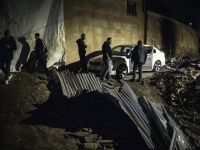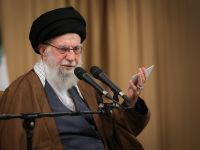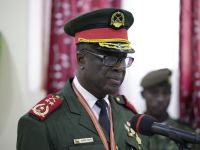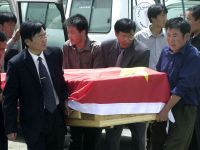A U.S.-British airstrike in southern Iraq killed seven civilians and wounded four, the Iraqi military said Saturday.
An Iraqi military spokesman told the official Iraqi News Agency that warplanes bombed areas in Najaf province,some 140 kms south of Baghdad on Friday.
On Friday, a Pentagon statement said the bombing was in response to Iraq's firing surface-to-air missiles and anti-aircraft guns at American and British warplanes patrolling a no-fly zone.
Meanwhile, chief U.N. weapons inspector Hans Blix said Saturday he could not rule out there might be spies in his team due to resume work in Iraq, but any intelligence agents would be ordered off the group.
Blix, stopping over in Paris on his way to Cyprus and Baghdad, said it was important that the team avoid the charges of bias which undermined the work of the last inspectors who worked in Iraq between 1992 and 1998.
According to Reuters, he warned Iraqi authorities that any delay in allowing inspectors access to sites would be very serious.
Iraq has accused some previous U.N. arms inspectors of being spies working directly for the United States, but Blix said he could not be sure that the team of inspectors, due to resume work in Iraq on November 27, would be free of undercover agents. He noted that the staff was made up of 45 different nationalities in an attempt to ensure it remained impartial.
"People have asked me: 'Can you be absolutely sure we will have no spies in any of the member states?' and I said no, I don't think either the KGB or the CIA can give that absolute assurance," Blix told a joint news conference with French Foreign Minister Dominique de Villepin.
"All I can say is that if I see someone having two hats, then I would ask them to walk out from us and to be somewhere else," he added. Blix aired he expected to have 100 inspectors in Iraq by the end of this year. He acknowledged that charges of spying had undermined the work of the previous U.N. inspection regime, known as UNSCOM.
"UNSCOM lost its legitimacy by being too closely associated with intelligence and with Western states," Blix said. (Albawaba.com)
© 2002 Al Bawaba (www.albawaba.com)







